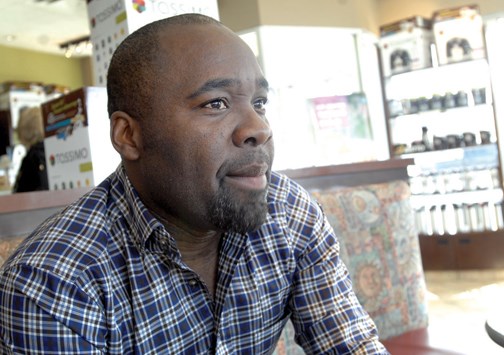Since coming to Prince George from South Africa two years ago to practice emergency medicine, Yvon Makadiama has set down roots in the community.
He's bought a house and is actively in involved in the Helicopter Emergency Rescue Operations Society, which aims to bring doctor-led air ambulance to the region. Ideally, Makadiama would like to continue his career at UHNBC for years to come, but a lack of training capacity for foreign doctors could force him to leave the province - perhaps for good.
Makadiama completed four years of specialized training in emergency medicine in South Africa and Canada's Royal College has credited him for the education he's done. However, he still needs to complete a one-year fellowship before writing his final Canadian exams.
He started applying to schools across the country in December 2011 and has received positive responses from medical programs in other provinces - but not in B.C. The conditional acceptances from the other schools come with string attached.
"Saskatchewan told me on the nose that we need doctors like you, so if we give you one year [of education], you have to stay in the province, that's the policy," Makadiama said.
He reported similar stories from universities in Alberta and Ontario, with the return of service required ranging from one to five years after graduation. Staying in a place that long could easily end up becoming permanent.
That doesn't sit well with Makadiama, because he wants to stay in Prince George. He enjoys the size of the community - no traffic jams like in the big city - as well as the recreational opportunities available in the north.
When he does complete his training, Makadiama said he would become the first fellowship-trained emergency specialist in the region, which he believes could make him an asset to the Northern Medical Program.
"I thought I was coming to Prince George to increase the pool of specialists," he said.
UBC associate dean of post-graduate medical education Dr. Roger Wong said what Makadiama is looking for simply isn't available in the province.
Wong said privacy rules prevented him from addressing Makadiama's case directly, but he did confirm the school has received an application.
"The Royal College has very fixed guidelines or accreditation standards that we must adhere to," he said. "We have to make sure that all the doctors that go through residency training meet these objectives and very rigorous standards."
The medical school recently increased the number of emergency room specialty seats from six to 10, but they require five years of study to complete. There is also a one-year program for family doctors to get an emergency medicine designation, but Makadiama doesn't qualify because he isn't a family physician.
There are also 34 positions for foreign-trained doctors to complete their education in Canada, but none of those seats are in emergency medicine.
"[The provincial government has] insisted, and I think very appropriately, that these positions are predominantly in family medicine and three of them are in the generalist specialty area - and emergency medicine is not on that list," Wong said.
Makadiama is looking for more support from Northern Health as he tries to change UBC's mind. He believes the health authority could put pressure on the school to find a way to allow him to complete his training and write his final exam.
Northern Health spokesman Steve Raper said the health authority is aware of Makadiama's predicament, but can't comment on the specifics of personal matters. Generally speaking, he said Northern Health can provide support for those seeking to gain their credentials.
"We do, and will continue to, advocate for and work with legislative bodies to assist our physicians, including those with foreign credentials, through the processes they are required to follow to meet professional practice and compliance standards," he said in an email.
Makadiama has five years to complete his training and the clock is ticking. If he doesn't write the exam in three years, he'll be forced to leave.
"If I don't fulfill them in five years, then buh-bye. I'll have to go somewhere else, either to the U.S. or South Africa," he said.



